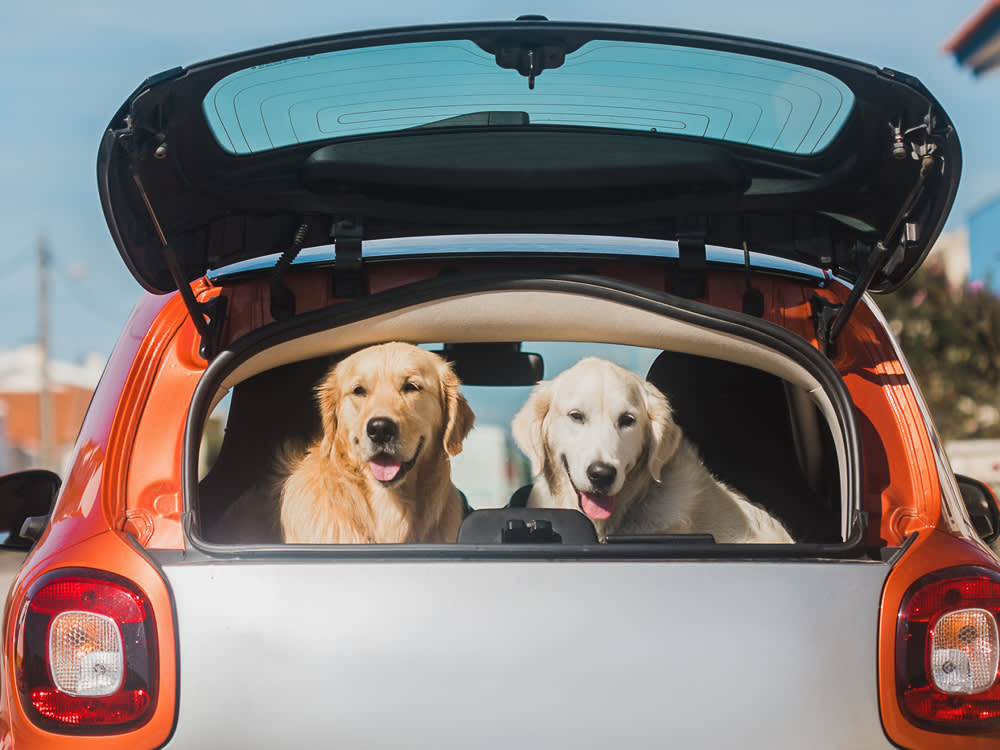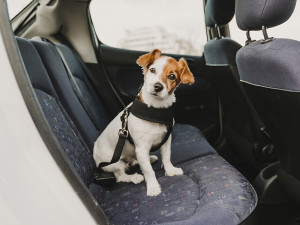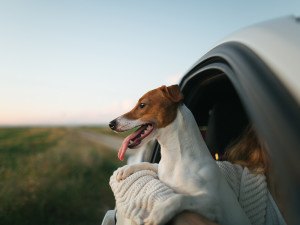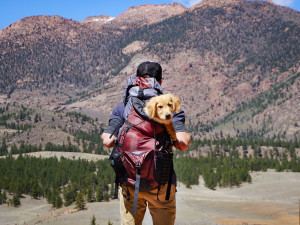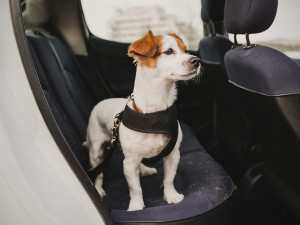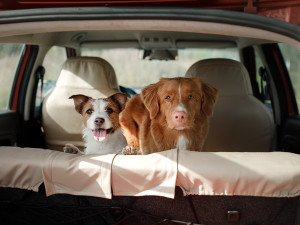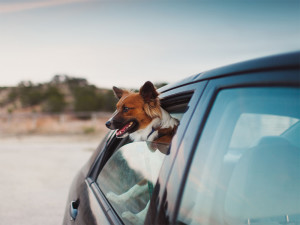Follow These Road Trip Tips for Wanderlusting Pet Parents
Bring your pet along for the ride with these pro tips from a dog trainer.
Travel isn’t just for summer. If you can get the time off work, you should hit the road and explore, no matter the time of year. And you’re obviously not going alone, especially if your pup has anything to do with it.
Considering you haven’t walked to the bathroom without your dog following you for the past year, it’s safe to assume your sidekick is coming with you. Whether you’re a weekend warrior or cross-country explorer, you’ll need a plan to keep your pet safe — especially if this is their first road trip. Read this before you head out into the wild unknown with the best kind of backseat driver.
Is your dog road trip ready?
First things first, does your dog even like car rides or do they start shaking and drooling as soon as you start the engine? Not all pets love the experience of a moving vehicle. And that’s OK — there’s plenty of fun to be had at home or on hikes. But if you think they might adjust to road travel over time, start with really short trips. Actually, don’t even go anywhere at first.
Bring your dog to the car and put their favorite toy or a puzzle toy with treats in the backseat, then sit up front and scroll through your phone for five minutes. You’re waiting for your dog to relax, and once that happens, you can go back inside.
Do this as many times as it takes for them to start to settle and gradually work up from there: Start the engine, but don’t leave the driveway. Once you master that, ake a trip around the block, then take a short trip to somewhere with food at the destination (like a Starbucks Puppuccino). If your dog’s anxiety or nausea eases, you can probably work up to a longer trip. Your veterinarian can also help determine if anti-anxiety medications may be needed, and any traveling dog should be up to date on vaccines and in generally good health anyway.
What should you bring?
Car safety should be top of mind so while a dog’s head out the window — tongue wagging in the wind, slobber splattering the windshield of the car behind — is the picture of pure joy, it’s safer to keep your pet contained in the car. Car safety gear, like a dog seatbelt and harness, a bucket seat that buckles in, or a soft-sided crate are all safe bets (and a crate can double as a safe space for your pup when you get to your destination).
Some other essentials include a jug of water, portable bowls, their regular food (trust us: this isn’t the time to change up their diet), treats, toys, poop bags, and their favorite bed or blanket. Check your dog’s collar to ensure it’s snug so they can’t slip out of it or switch to a martingale collar, which is designed to prevent a dog from backing out. (Rest stops are the most common places for dogs to run off.) For fearful pups, add a front-clip harness and attach the leash to both the harness and collar as a fail-safe.
Finally, don’t forget your dog’s identification: Make sure their ID tag is up to date with your contact info and get them microchipped for added peace of mind — microchipped dogs who are lost, then found and brought to a vet or shelter, are four times as likely to find their way home than ones who aren’t.
Where will you go?
Are you and your dog beach bums or trail blazers? Do you prefer pet-friendly hotel sheets or a sleeping bag under the stars? If it’s your pet’s first trip, map out an adventure that they are sure to love so they associate car rides with epic memories. Unless your pup is a social butterfly, try to avoid busy cities along the way.
And be sure to check local rules and regulations. For instance, many beaches prohibit dogs in the summer, some only off-leash dogs, and others only allow them during early morning and late evening hours.
National parks are popular destinations, but most don’t allow dogs on hiking trails. National forests, on the other hand, allow dogs on many trails and in campgrounds — and there are more than 150 of them around the country. Stay flexible with your plans. Just like traveling with a new partner, hitting the road with a pet can be a bonding experience like no other. But if you see it’s stressing out your pup, have a plan B or be open to cutting the trip short. Something says they won’t mind much about where they’re going (or even how far) as long as you’re there and have treats. Obviously.
